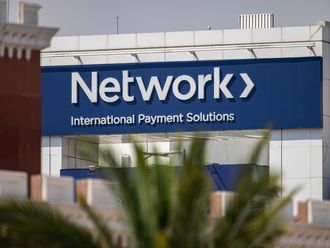Dubai: Demand for credit in the UAE remains healthy while the credit conditions have softened in the first quarter of 2015 with moderating demand growth for credit and a tightening of credit standards for corporates, according the first quarter Credit Sentiment Survey by the Central Bank of UAE.
The Credit Sentiment Survey is a quarterly publication which collects information from all banks and financial institutions extending credit within the UAE.
“Such softening in the March quarter likely reflects conditions reverting towards a more sustainable path following the exceptionally strong conditions evident in early to mid 2014,” the central bank said.
According to survey respondents, demand growth for business credit continued to slow through the March quarter. Nonetheless, with 45 per cent of respondents citing an increase in demand during the quarter.
With respect to credit standards, survey respondents reported a tightening overall, citing the economic outlook and industry specific conditions as key factors attributable to such changes.
The survey results suggest the impact of lower oil prices had a relatively minor impact on UAE credit conditions, with most respondents citing no impact on either demand for business loans or credit standards.
According to the survey, 44.9 per cent of respondents reported no impact, 41.5 per cent reported a negative impact while 13.6 per cent reported a positive impact. On balance, such results would be indicative of a negative, yet modest, impact on demand for loans. By economic activity, the largest effects were recorded within the construction, mining & quarrying and property development sectors
On balance, results suggest robust credit conditions have persisted into early 2015, but clearly softer than previous quarters. Such conditions are expected to be maintained.
Measure for business lending
Results from the March quarter survey suggest demand growth for business loans persisted through early 2015. However, results also indicated further softening in growth evident in late 2014. The net balance measure for business lending — the weighted percentage of respondents reporting an increase in demand for loans minus those reporting a fall in demand — dropped to 13.6 in the first quarter from 29.6 in the previous quarter.
By emirate, the softening in demand growth was evident across the board. Demand for personal loans continued to grow during the March quarter. However, the pace of demand growth moderated, with demand for credit easing from the very high levels in 2014. For the June 2015 quarter, survey respondents are optimistic about the outlook of personal lending, though the rate of demand growth is expected to be further moderated for Abu Dhabi and Northern Emirates.
By market segment, demand growth slowed across all categories except Islamic products during the March quarter. Notably, demand growth was weakest within the government related entities (GRE) sector during the quarter, following a relatively soft reading in the December quarter. Similarly, demand growth from non-residents was very soft, with 72 per cent of respondents reporting no change in demand.
With the exception of non-bank financial institutions, demand growth for loans slowed across all sectors of economic activity through the March 2015 quarter. Notably, demand growth within sectors which had previously been key drivers of loan demand had slowed markedly. In particular, growth in loans in the construction, property development and the transport sectors had slowed significantly. Retail and wholesale trade and manufacturing, while slowing, continued to report robust demand growth for business loans.











